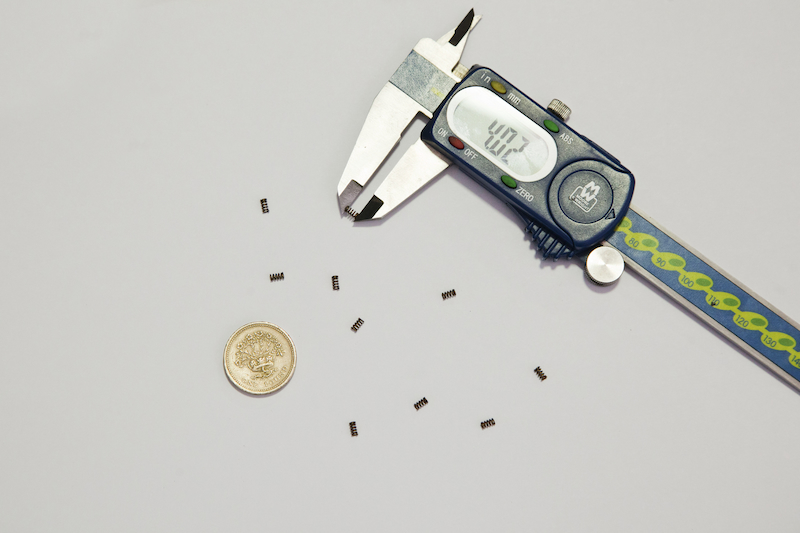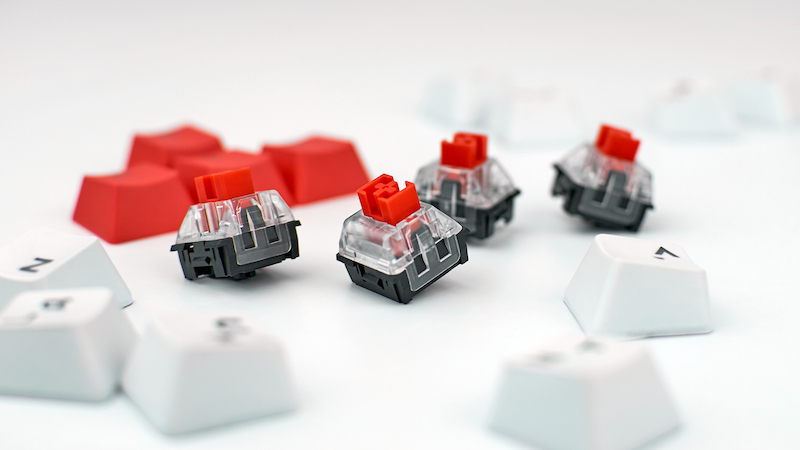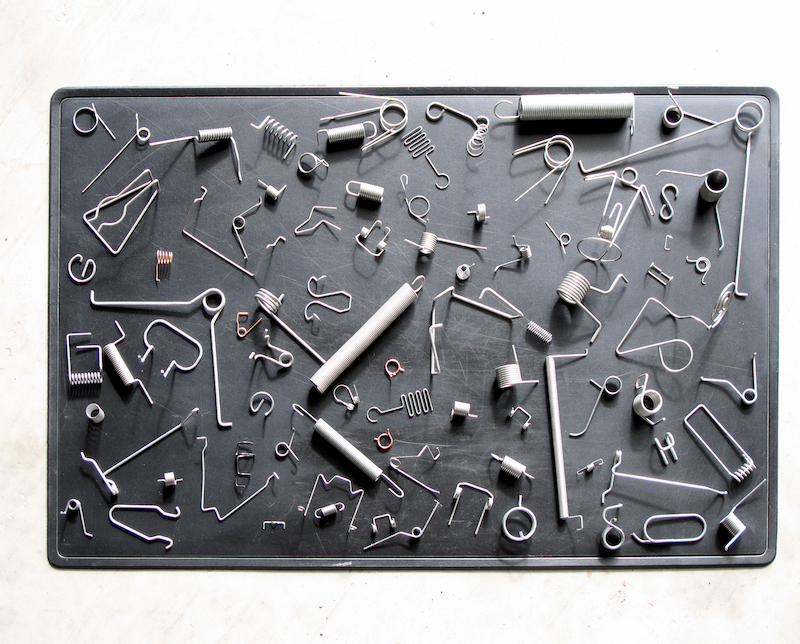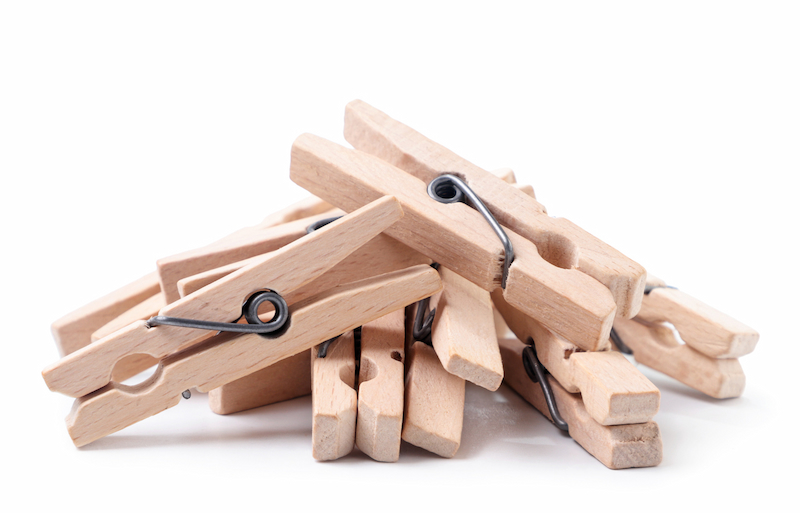Small and unusual springs are all around us, helping the appliances we use daily to work as they should. As technology develops, devices and equipment become increasingly more intricate, and the springs and wire forms they depend on to function correctly also have to shrink in size. There’s no set definition for what constitutes a small spring, and, like all sized springs, they come in a wide variety of types.
Today, we’re taking a closer look at small and unusual springs, what they’re used for and how Airedale Springs manufactures them for a wide range of uses.

Small Compression Springs
Small compression springs are perhaps the most recognisable small spring, consisting of helical coils and pitches in between, which allow the spring to push back against an applied force. This allows the spring to return to its original position when the force is released.
Small compression springs are all around us, and typical applications include:
- Toys
- Medical devices
- Electronics
- Pens and mechanical pencils
- Precision instruments and tools
- Electrical switches
The light switch is a fantastic example of a small spring at work. Pressing the switch lever stores potential energy as mechanical stress in a spring located inside the switch. This stored mechanical energy causes the switch mechanism to ‘break over’ and triggers the contacts to transition either from open to closed or closed to open – supplying or cutting off power to the circuit. The presence of the spring allows this to happen without any further action from the operator beyond pressing the switch lever and prevents the light from switching itself off.

Small Springs in Mechanical Keyboard Switches
Small springs are used in mechanical keyboards to provide a tactile typing experience for the user. Traditional keyboards – laptop keyboards and rubber dome keyboards – operate using layers of plastic membrane. Pressing a key causes a rubber switch to push through the membrane and complete the circuit, sending the input signal to the computer.
These styles of keyboard are cheap to manufacture and can be made with very thin, flat keys that allow a laptop screen to close shut over the keyboard without damaging either the screen or the keyboard itself. For frequent typists, gamers or anyone who wants a more responsive typing experience, traditional keyboards may feel mushy and produce less accurate results than their mechanical counterparts.
Mechanical keyboards rely on switches with small springs inside, which are compressed when you push down the key to complete the circuit and register the keystroke. Their mechanical nature often results in the satisfying click-clack sound that traditional keyboards lack. There is a wide variety of switch types available for varying levels of key sensitivity. Although more expensive and bulkier than conventional keyboards, the mechanical variants typically provide a better typing experience and result in fewer mistypes – and it’s all made possible by springs.

Unusual Small Springs
Sometimes, an application calls for unconventionally shaped flat springs or wire forms to get the job done. In many appliances and equipment, the space a spring has to operate is limited, a peculiar shape, or both. In this case, a small flat spring is ideal, as it can be cut to shape to fit the required space.
Because flat springs are cut from sheet metal rather than coiled wire, there are infinite possibilities in terms of shape and size. You can learn more about them in our introduction to flat springs, and you’ll find small flat springs in electrical appliances, where they are often used as contacts to complete a circuit.
Small Torsion Springs
When a rotational force is needed, a small torsion spring will be used to provide radial load as the legs of the spring rotate. This rotation builds up force as the degree of movement of the torsion spring arm increases. Applications in which a small torsion spring may be required include:
- Clothes pegs
- Small hinges
- Clipboards

Airedale Springs’ Small Spring Manufacturing Capabilities
Here at Airedale Springs, we can manufacture springs with a wire diameter as small as 0.15mm with our range of wide CNC coiling machines. With over 75 years of experience as spring manufacturers, we can advise on the best materials and finishes for your small springs and any drawbacks or restrictions that come with working with smaller sizes of wire. We’ll always provide honest advice on what is and isn’t suitable for a small spring, such as not grounding the ends flat when dealing with wire diameter under 0.5mm.
If you would like any information on our small spring manufacturing capabilities or any other style of spring we’re able to produce, please contact us today; we’ll be more than happy to help.

